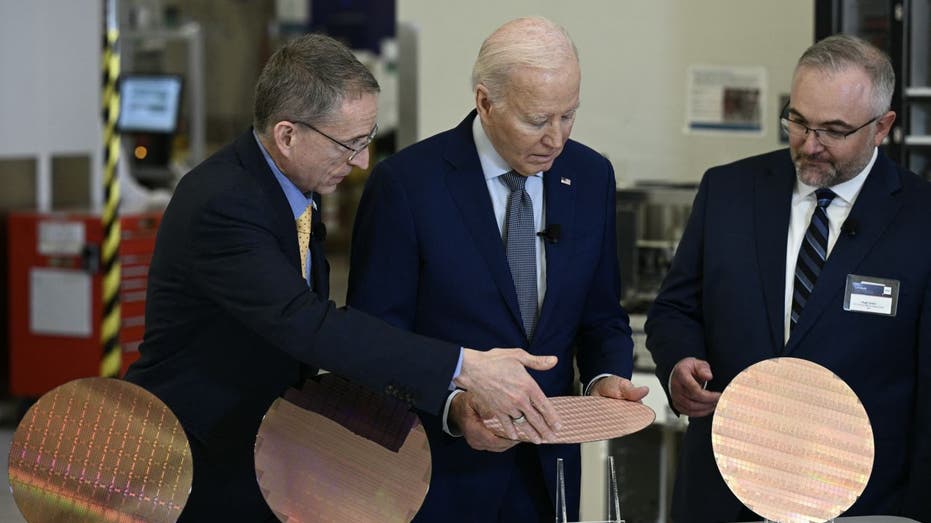Months after the federal government gave Intel $8.5 billion in grants to help bring back chipmaking to the U.S., the company said it is cutting 15% of its workforce, which translates to around 17,000 jobs.
The tech company announced the job cuts as part of a massive cost-cutting and restructuring plan.
“This is an incredibly hard day for Intel as we are making some of the most consequential changes in our company’s history,” Intel CEO Pat Gelsinger said in a note to employees this week. “Simply put, we must align our cost structure with our new operating model and fundamentally change the way we operate.”
Gelsinger added that revenues hadn’t “grown as expected.”
NATO’S $1.1B INNOVATION FUND INVESTS IN AI, ROBOTS AND SPACE TECH
“Our costs are too high, our margins are too low,” he wrote. “We need bolder actions to address both — particularly given our financial results and outlook for the second half of 2024, which is tougher than previously expected. These decisions have challenged me to my core, and this is the hardest thing I’ve done in my career. My pledge to you is that we will prioritize a culture of honesty, transparency and respect in the weeks and months to come.”
The company’s stock fell 26% Friday after the announcement.
INTEL SHARES SINK WITH 15% OF WORKFORCE GETTING AXED, SUSPENDS DIVIDEND
The decision to cut jobs after the influx of federal funds has raised some eyebrows.
“Someone help me understand how this is smart or fair,” “Making Money” host Charles Payne wrote on X Saturday. “The Biden-Harris administration has handed billions of dollars to the richest corporations ever, including many foreign companies.”
Intel has around 116,500 workers.
The semiconductor giant received federal subsidies under the Biden administration’s CHIPS and Science Act that was signed into law in 2022 to advance semiconductor manufacturing projects in four U.S. states.
The bipartisan legislation aims to improve competition with China by strengthening U.S. manufacturing, supply chains and national security and investing in research and development, science and technology.
The CHIPS and Science Act allocated more than $52 billion for U.S. semiconductor research, development, manufacturing and workforce development.

“Clearly, market conditions, some were good and some not so good, and you have to adjust the financial envelope appropriately,” Gelsinger said in an interview with The Wall Street Journal. “The AI surge was much more acute than I expected, and you have to adjust to those things.”
Demand for AI chips from the likes of Nvidia has shifted away from non-AI products, cutting Intel’s sales by 1% to $12.8 billion. The company lost $1.6 billion compared to a profit of $1.5 billion in the prior quarter.
Intel and the White House did not immediately respond to FOX Business’ request for comment.
Fox Business’ Suzanne O’Halloran and Landon Mion contributed to this report.
Read the full article here












